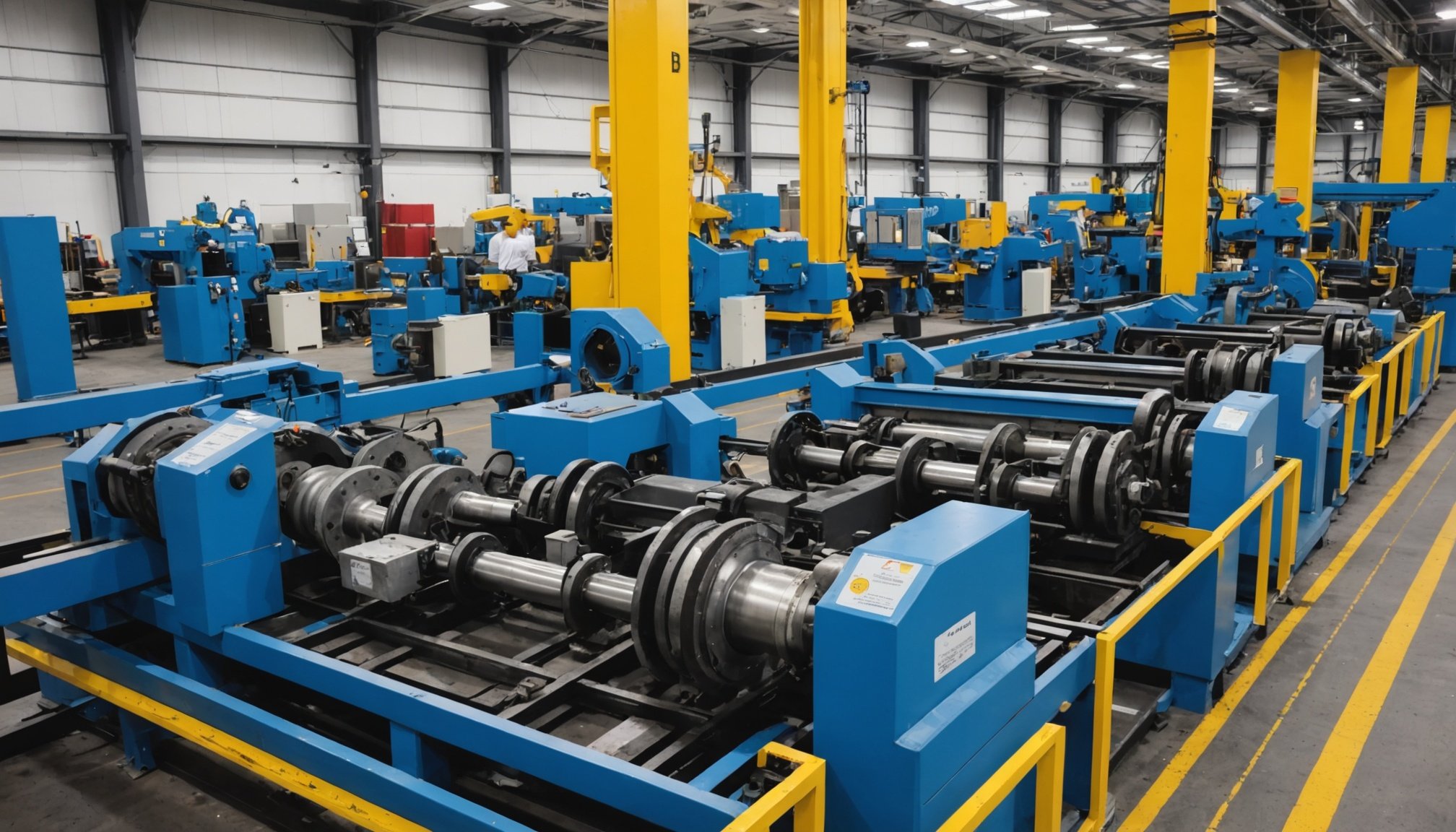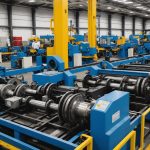Overview of Portsmouth’s Manufacturing Landscape
The manufacturing sector in Portsmouth remains a vital component of the local economy, contributing significantly to employment and economic activity. Portsmouth’s manufacturing industry features a diverse range of sectors including aerospace, maritime, and electronics. These sectors not only create jobs but also foster innovation by adapting new technologies to maintain competitiveness.
However, local manufacturers face several challenges. Competition from global markets puts pressure on Portsmouth firms to continually improve efficiency and product quality. Additionally, the fluctuating costs of raw materials and labour present financial hurdles that can impact profitability.
Also read : Innovative Marketing Strategies to Skyrocket Your New Brighton Café’s Success
The competitive landscape in Portsmouth’s manufacturing industry is marked by both traditional industries and emerging technology-driven firms. As these entities strive to capture market share, they emphasize the importance of adaptability and forward-thinking strategies. Portsmouth’s geographic location also offers strategic advantages for distribution and export, which firms can leverage to enhance their market positioning.
In summary, while Portsmouth’s manufacturing scene is robust and contributes significantly to the local economy, it must navigate economic pressures and evolving global competition to sustain its growth trajectory. Understanding these dynamics is essential for stakeholders seeking to maximise the potential of Portsmouth’s manufacturing sector.
Have you seen this : Key Components for Building a Sustainable Business Model in Swansea: A Comprehensive Guide
Best Practices for Operational Efficiency
Operational efficiency is pivotal for maintaining competitiveness in Portsmouth’s manufacturing sector. Lean manufacturing principles, emphasising waste reduction and continuous improvement, play a crucial role. By focusing on eliminating inefficiencies, local firms can boost productivity and enhance quality. Adopting these principles involves streamlining processes, optimising inventories, and fostering a culture of continuous improvement among employees.
Moreover, the adoption of automation technologies has revolutionised how local manufacturers operate. Automation not only reduces manual errors but also accelerates production times. In Portsmouth, integrating technologies like robotic process automation and industrial IoT can lead to substantial gains in efficiency.
Importantly, employee training and engagement are core components of operational efficiency. Employees who are well-trained in new technologies and procedures contribute significantly to smooth and efficient operations. Engaging employees by involving them in decision-making processes and recognising their contributions can lead to increased job satisfaction and performance.
In conclusion, through a combination of lean practices, technology adoption, and robust human resource strategies, Portsmouth manufacturers can enhance operational efficiency and secure a competitive edge in the industry.
Cost-Reduction Strategies
Cost-reduction strategies in manufacturing are essential for maintaining profitability amid fluctuating market conditions. Efficient supply chain management practices offer significant potential for cost savings. Firms in Portsmouth can enhance supply chain efficiency by adopting strategies such as just-in-time inventory and sourcing local materials to reduce transportation costs. Optimising logistics and employing advanced forecasting tools can further streamline operations and minimise expenses.
Moreover, reducing waste and energy consumption is another critical aspect of cost reduction. Implementing energy-efficient technologies, such as LED lighting and smart energy management systems, not only cuts costs but also aligns with sustainability goals. Adopting practices to minimise material waste, such as recycling and reusing by-products, can also alleviate financial pressure.
Additionally, financial incentives are available to Portsmouth manufacturers to support cost-reduction initiatives. These can include grants, tax rebates, and low-interest financing options for adopting eco-friendly technologies or expanding production capabilities. Leveraging these incentives allows local firms to invest in tools and strategies that drive down operational costs while maintaining a competitive edge. By focusing on these areas, manufacturers in Portsmouth can achieve substantial savings and reinforce their financial management strategies.
Technological Innovations Driving Change
The manufacturing technology landscape in Portsmouth is evolving rapidly, with local firms increasingly embracing technological advancements. The implementation of Industry 4.0 technologies, including automation, data analytics, and IoT, has become fundamental in enhancing production efficiency and maintaining a competitive edge. By integrating these innovations, manufacturers can optimize processes, reduce downtime, and elevate quality standards.
One of the key drivers of change is the role of data analytics, which provides profound operational insights. By analysing large datasets, firms can identify inefficiencies and predict maintenance needs, resulting in informed decision-making and proactive management. This not only improves productivity but also supports cost-efficiency in the long term.
Notably, Portsmouth showcases successful tech adoption case studies, where local businesses have reaped substantial benefits. For instance, a local electronics manufacturer implemented a comprehensive IoT system, leading to a 20% reduction in energy consumption and improved machine uptime. These examples underscore the transformative impact of embracing cutting-edge technologies in the manufacturing sector.
Innovators in Portsmouth are, thereby, setting a robust precedent for the industry, ensuring sustained growth and competitiveness through manufacturing technology integration.
Workforce Management for Efficiency
Successfully navigating workforce optimization is crucial for maintaining competitive advantage in Portsmouth’s manufacturing sector. Effective planning strategies, such as detailed scheduling and monitoring worker productivity, ensure that personnel are optimally allocated to meet demand.
To stay competitive, upskilling and reskilling play imperative roles. Continuous training keeps the workforce abreast of technological advancements and new manufacturing practices. This not only enhances employee capabilities but also boosts job satisfaction, leading to increased retention and commitment to company goals.
Portsmouth boasts several success stories where focused workforce initiatives have proven their worth. For instance, a maritime firm introduced a comprehensive employee development plan, leading to a 15% boost in productivity. Such examples highlight the positive impact of prioritizing workforce skill enhancement.
In summary, by adopting strategic workforce management, including skill development and efficient scheduling, Portsmouth manufacturers can foster a motivated and highly-skilled workforce, essential for achieving sustained growth and efficiency.
Local Resources and Support Systems
Local manufacturers in Portsmouth have access to a range of government and community programs designed to support and enhance the industry. These programs often provide financial assistance, technological guidance, and professional networking opportunities. By leveraging such resources, manufacturers can bolster their operational capabilities and drive innovation.
Collaboration with local colleges and universities is another significant advantage for manufacturers. These institutions offer research partnerships, access to cutting-edge technology, and specialised training programs that can upskill the workforce. Such engagements not only enhance employee expertise but also align academic advancements with industry needs.
Manufacturers can also benefit from networking resources, which facilitate the sharing of best practices and innovative strategies. Industry associations and local business forums provide platforms for discussion, enabling manufacturers to stay informed about market trends and developments. These resources play a critical role in maintaining competitiveness and resilience within the Portsmouth manufacturing sector.
By utilising local resources and forming strategic partnerships, manufacturers can navigate operational challenges more efficiently and sustain growth in a competitive landscape.











